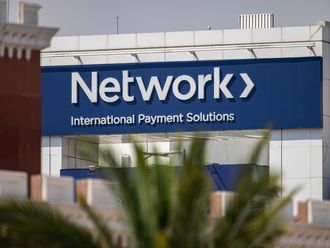
Dubai: In keeping with the global decline the growth of assets under management (AuM), the Middle East also witnessed a sharp fall in the total AuM last year, according to a study by Boston Consulting Group (BCG).
Globally, AuM stalled with marginal growth last year. The BCG report shows the global value of AuM rose just 1 per cent in 2015, to $71.4 trillion (Dh262 trillion) from $70.5 trillion in 2014, after growing 8 per cent that year, and at an average annualised rate of 5 per cent from 2008 through 2014.
In contrast, the Middle East’s AuM declined 10 per cent and net new flows of assets, revenue growth, and revenue margins all dipped lower in 2015. In absolute terms the region’s AuM plummeted from $1.4 trillion in 2014 to $1.3 trillion in 2015.
According to BCG, asset managers’ future prosperity and competitive advantage will require them to shift from outdated product strategies and develop disruptive investment capabilities using leading-edge data and analytics.
“Asset managers that depend on financial-market performance to drive increases in asset values are stuck in a model from the past. And while it is true that clients focus on returns, they also expect more,” said Ihab Khalil, a Partner and Managing Director at BCG Middle East.
The lack of overall growth in AuM was due largely to the generally negative and turbulent performance of global financial markets, which failed to buoy the value of invested assets as in prior years. Net new asset flows remained tepid. At the same time, the rising value of the US dollar reduced values of non-US assets in dollar terms. In addition, institutional managers have divested assets to outbalance government deficits.
The report showed globally, AuM decreased in North America and the Middle East but rose elsewhere. Growth was modest in Europe and strong in Latin America and Asia, excluding Japan and Australia. The 10 per cent growth of AuM in Asia, excluding Japan and Australia, was relatively robust, but once again, it trailed the rapid expansion of the region’s private wealth.
While asset management continues to be highly profitable, the 2015 results underscore the continuing dependence of many managers on rising financial markets to boost asset values rather than on long-term competitive advantage to generate strong net new flows, the report said.
“The lack of market growth in 2015 reinforces the urgency faced by managers to pursue a step change in capabilities. Deep expertise, grounded in advanced data and analytics, will define competitive advantage and enable some managers to prevail,” said Markus Massi, Partner and Managing Director of BCG Middle East’s Financial Services practice and leader of the asset management topic.
Advanced and sometimes disruptive technologies — including machine learning, artificial intelligence, natural-language processing, and predictive reasoning — are on the verge of joining mainstream asset managers, according to the report. Early-moving firms and financial-technology providers are beginning to model scenarios that push the boundaries of traditional analytics.
“As a result, today’s managers face a fundamental need to augment their investment processes by developing advanced capabilities in these digital technologies and practices. The alternative, for most firms, is to risk becoming irrelevant and trailing others in the ability to generate superior investment returns, or alpha,” said Massi.










